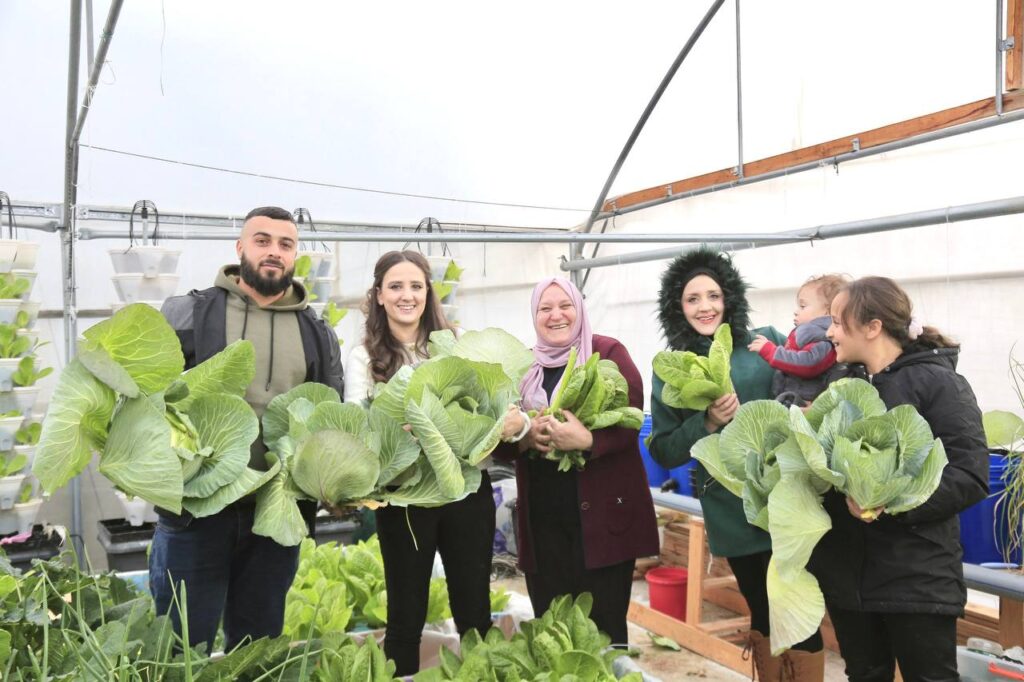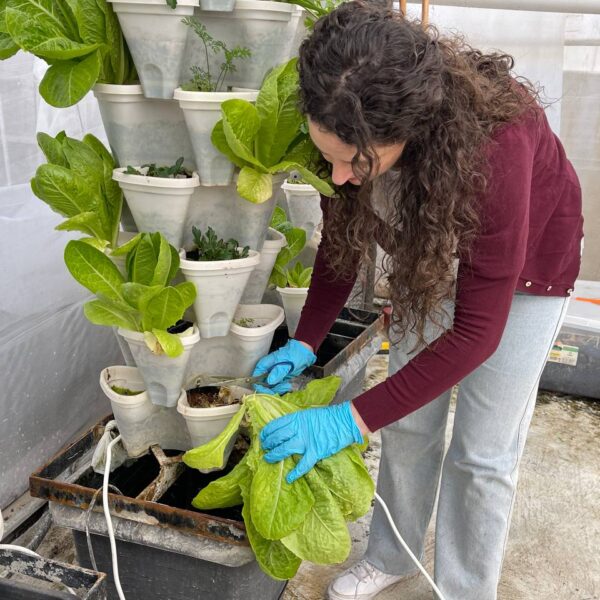In the Palestinian refugee camps, space is scarce, and economic resources and prospects are limited. However, an initiative led by women is restoring hope for regained autonomy: cultivating on rooftops through hydroponics. An ingenious response to precariousness, championed by activist Shatha Alazzah.
In the refugee camps of the West Bank, concrete has replaced fields, and the agricultural heritage of Palestinian families often seems silenced. Yet, a quiet revolution is underway. On the rooftops of houses, young people and women are bringing life back to the land – or rather to the water. Hydroponics, which allows vegetables to be grown without soil, is emerging as an ingenious response to the constraints of a stifling urban environment.
Less water, more harvests
At the origin of the movement: Shatha Alazzah, from the Beit Jibrin camp near Bethlehem. She initiated the first rooftop cultivation project in the Aida and Al-Azza camps. “In such a constrained space, we had to invent a new relationship with the land. It is through agriculture that we can regain a sense of dignity and autonomy,” she explains.
Quickly, the initiative shifted towards hydroponics. “This method is ideal for our environment: it consumes 70% less water than traditional agriculture and produces three times more,” emphasizes Shatha. In a 45 m² greenhouse, 20 vertical towers host lettuce, basil, and parsley. Next to it, a deep water culture system allows for the cultivation of cabbage, tomatoes, or broccoli. All monitored by sensors measuring pH, temperature, and nutrient levels.
The team has also set up an aquaponics system, which combines plant cultivation and fish farming. “Fish waste is filtered and turned into natural fertilizer. Nothing is wasted, everything is recycled,” she specifies.
To further enhance sustainability, red worms transform manure into organic compost, used notably on land rented outside the camps. “We target underutilized plots, often owned by women. This allows us to pass on skills and strengthen their autonomy,” she adds.
A cooperative serving women
To structure this dynamic, Shatha founded the Riyhana Cooperative, named after a local plant. The goal: to train, equip, and support women in sustainable agricultural projects. “Riyhana aims to empower women to take action. They can thus improve their household economy while engaging in environmentally friendly agriculture.”
And Aida Khalil, a volunteer from the Aida camp, adds: “I have learned a lot since joining Riyhana, especially about hydroponics and environmental agriculture. By participating in the cultivation of leafy vegetables like spinach and fava beans, I have learned to fertilize the soil to maximize my production.” An essential experience for success in this type of agriculture.
The association organizes workshops, practical training, and educational visits to ecological farms. Part of the production is sold at local markets, such as the one in Bethlehem. The other part is transformed into pickles, contributing to the economic viability of the project by promoting these products in supermarkets.
To further expand the idea, Riyhana aims to support women in their own agricultural projects by organizing exhibitions and bazaars to market these products. Community bazaars indeed blend agriculture, culture, and entertainment, strengthening social ties.
Resist, cultivate, exist
Despite its successes, the project faces many challenges: overcrowding, lack of light on rooftops, power outages. Added to this are the risks related to the political context: “During certain clashes, tear gas has entered the greenhouses and damaged the crops. It’s a daily struggle,” confides Shatha.
The main obstacle remains access to water. “Certain crops like cucumbers, which are in high demand, are difficult to maintain. We train women to select suitable varieties and optimize resources.”
But nothing seems to dent her determination: “All material, social, or political obstacles will not stop us. We are determined to grow life, even on concrete.”
A global vision rooted in the local
For Shatha, this project is not just a local response to a humanitarian crisis: “Palestinian women are part of a global movement for a more sustainable society. We contribute to reducing pollution, protecting resources, and building a fairer future.”
In the interstices of concrete and precariousness, hydroponics thus becomes much more than a technique: an act of resistance, transmission, and hope.

Cover photo: Shatha Alazzah harvests salads in the greenhouse of the Beit Jibrin camp near Bethlehem © Monjed Jadou
